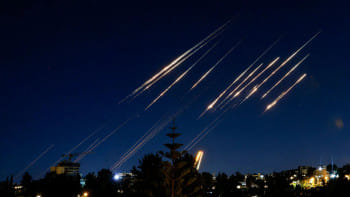On the 2024 farmers’ protest in India

Thousands of farmers from Punjab and Haryana have taken to the streets again, just over two years after their previous year-long agitation had hogged the national and international media's attention. In the fresh spell of the agitation, christened "Delhi Chalo," that began on the Punjab-Haryana border on February 13, the farmers smashed through police barricades but faced teargas shells, including those dropped from drones, on their way to the capital. The next day, the farmers, in a novel measure, sent hundreds of kites up in the sky to counter the drones. At the Khanauri border point, Haryana police charged with batons against the farmers and a number of them were detained, their vehicles seized at the Shambhu border.
The main demand of the farmers is the enactment of a law to guarantee minimum support prices (MSP) for 23 crops as per the formula proposed by a commission headed by late agronomist Dr MS Swaminathan, considered the father of India's green revolution. This issue was agreed on during the multiple rounds of talks between farmers and the Modi government in 2021. Accordingly, a 23-member committee of experts, representatives of farmers' unions, and the government was set up for threadbare discussion on legal guarantees for MSP and other demands. Among the other key demands by the farmers are waiver of their debts and withdrawal of cases registered against them during the 2020-21 agitation.
The BJP is not oblivious to the fact that the Modi government had to finally bow before the 2021 agitation by scrapping the three controversial farm laws. That was due to the party's anxiety over spillover of the agitation in Punjab, Haryana, and western Uttar Pradesh. This time, the last thing the BJP wants is for farmers to stir snowballs so close to fresh Lok Sabha elections. Seeking to minimise possible damage, the Modi government has deputed three senior ministers to negotiate with the farmers. But the two rounds of talks already held are yet to lead to a solution.
There is recognition in the party that the agitation, if allowed to go on, would hurt it electorally in Punjab, where 13 Lok Sabha seats are at stake. The BJP has never been a key player in Punjab, either in assembly or Lok Sabha elections. It remains to be seen how the farmers' stir of 2021 and 2024 impact the upcoming national poll, especially in BJP-ruled UP, which has the highest number of 80 Lok Sabha seats. BJP succeeded in preventing UP regional party Rashtriya Lok Dal from drifting to the opposition camp by entering a tie-up with it. The RLD has a support base among Jat farmers in Meerut belt. It may not be entirely coincidental that the Modi government's decision to confer India's highest civilian honour Bharat Ratna on RLD leader Jayant Singh's grandfather, late Chaudhary Charan Singh—a Jat farmer who was India's prime minister for six months—was as much political messaging as recognising individual contribution.
The main difference between the farmers' stir in 2021 and this time is that the previous agitation had raged for a year at the doorsteps of Delhi—at the borders Delhi shares with Haryana and Uttar Pradesh, to be precise—as the farmers were not halted on their way from Punjab, Haryana, and UP. This time around, the farmers had a free passage in AAP-ruled Punjab and were stopped at the border with Haryana ruled by the same BJP government which did not foil the agitators in 2021. Another feature of the current agitation is that it is led by two separate farmers' outfits, Kisan Mazdoor Sangharsh Committee and Samyukta Kisan Morcha (non-political); the second being a breakaway group of Samyukta Kisan Morcha (SKM) which had led the 2021 movement.
The farmers' agitation has reignited the debate over the necessity or otherwise of the legal cover for MSP. The opinions remain as sharply divergent as ever. The Congress dispensation headed by Manmohan Singh had turned down Swaminathan committee's recommendation for MSP that was at least 50 percent higher than the weighted average cost of production, arguing that it would distort the crop market. "A mechanical linkage between MSP and cost of production may be counter-productive in some cases," KV Thomas, who was then the minister of state for agriculture and food, had said in response to a question by former BJP lawmaker Prakash Javadekar in parliament in 2010. Thomas had said the government favoured the Commission on Agricultural Costs and Prices-recommended MSP based on "objective criteria and considering a variety of factors." The Modi government has argued the legal backing for MSP needs to be deliberated in detail before a final decision is taken. The crux of the debate remains the same: while the government can provide legal guarantees for the crops it procures, can the same be extended to private players who would prefer to buy foodgrain at prices determined by demand-supply forces?
Pallab Bhattacharya is a special correspondent for The Daily Star. He writes from New Delhi, India.
Views expressed in this article are the author's own and do not reflect those of any organisation, institution or entity with which he is associated.
Follow The Daily Star Opinion on Facebook for the latest opinions, commentaries and analyses by experts and professionals. To contribute your article or letter to The Daily Star Opinion, see our guidelines for submission.

 For all latest news, follow The Daily Star's Google News channel.
For all latest news, follow The Daily Star's Google News channel. 








Comments